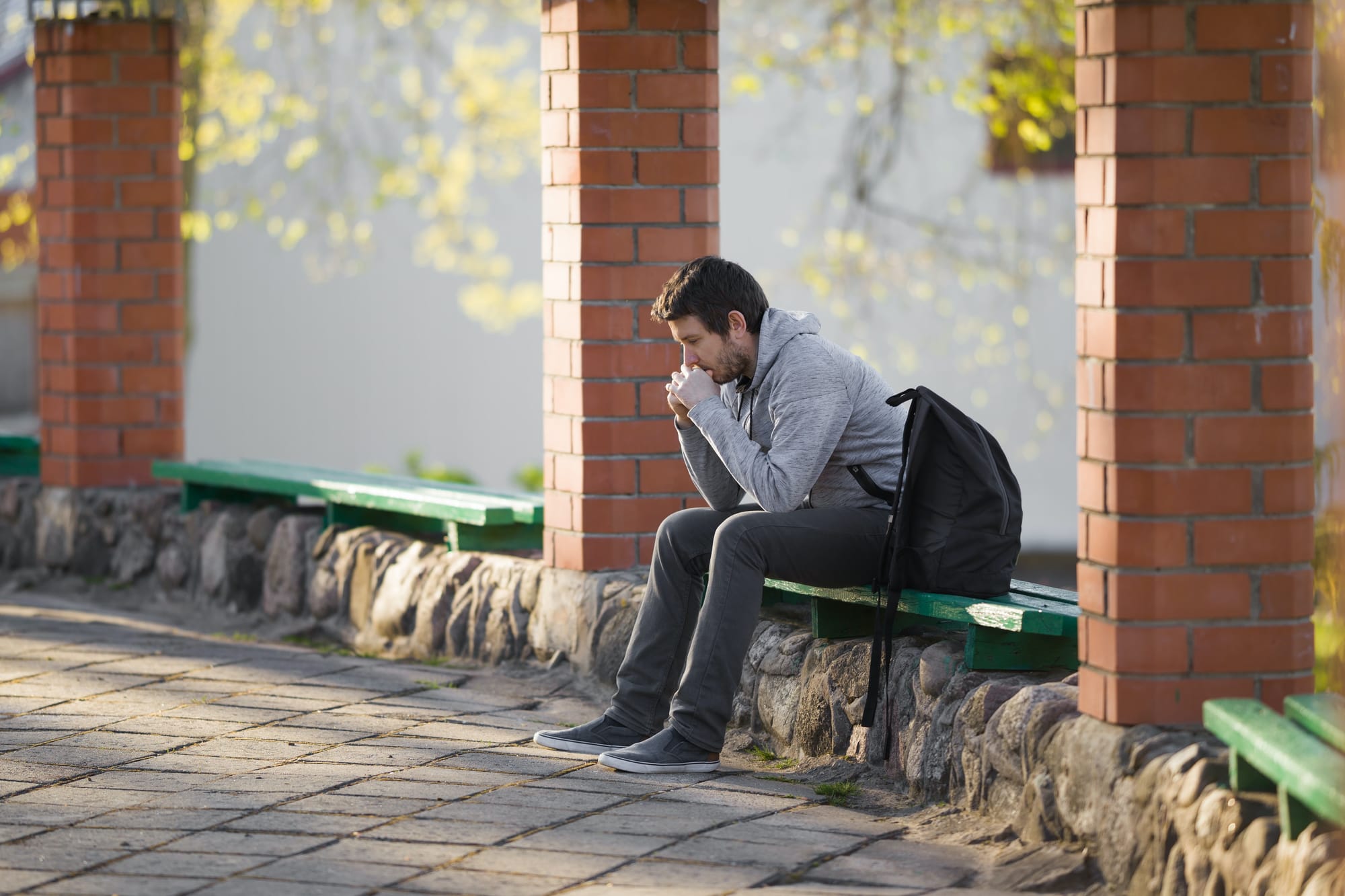
Before COVID, university and vocational education students were at high risk of developing mental disorders, such as depression and anxiety. This is because they already experience much higher levels of psychological distress than the general population.
But since COVID, this group is even more at risk. Our study has found the percentage of university and vocational education students reporting extremely high levels of distress during the pandemic (23%) was higher than before the pandemic (19%).
We also compared the percentage of Australian adults in the general population reporting extremely high levels of distress before (3%) and during (13%) COVID. In this population, too, distress levels have increased significantly.
So, overall, the percentage of tertiary students reporting extremely high levels of distress (23%) has remained much higher than for adults in the general population (13%).
Women and international students among worst-affected
Pandemics increase the amount of stressors people are subjected to for a number of reasons. In university students, these include health impacts associated with illness, worrying about becoming ill, being unable to work, having to study online, and being separated from friends and family.
Results of studies conducted in the United States and China have also shown COVID has increased levels of distress and mental health problems in university students.
In our yet-to-be-published study, we measured distress in 1072 students enrolled in university and vocational education and training across Australia. We did this using an online survey consisting of demographic questions and the Kessler 10 Item Psychological Distress Scale (K10) – a global measure of distress and symptoms of depression and anxiety.
The survey asks 10 questions, including “In the past four weeks, about how often did you feel hopeless?”, and “In the past four weeks, about how often did you feel so restless you could not sit still?”.
For each question, respondents have to signify whether this is “all of the time”, “most of the time”, “some of the time”, “a little of the time”, or “none of the time”.
In part one of the study, we compared current levels of student distress to distress in students before the pandemic, also measured using the K10, and found current levels were higher.

The groups displaying the highest levels of distress were younger students, women, international students, students living in Queensland, and those who have had a previous diagnosis of a mental disorder, as well as those receiving mental health care.
Here’s what we know can help
We recently conducted a review of studies (yet-to-be published) designed to promote mental health and stress resilience among university students. We found:
- focusing attention on the present moment was the most reliable exercise for reducing symptoms of anxiety
- engaging in enjoyable and personally meaningful activities was the most effective exercise for reducing symptoms of depression
- positive relations with others decreased symptoms of anxiety and paranoia, and improved positive emotions
- humour relieved symptoms of anxiety
- keeping a journal relieved symptoms of anxiety; doing this may also improve positive emotions
- acceptance during difficult circumstances also relieved symptoms of anxiety, but not as effectively as focusing attention on the present moment, humour, journaling or positive relationships
- gratitude, optimism, self-compassion, being aware of emotions and taking probiotics all helped to improve mental health, but not as effectively as the other exercises outlined above
- exercise relieves symptoms of depression and anxiety, and can also improve positive emotions if the participant does not push too far beyond their ability level.
Preventive measures are important
Most Australian universities already offer mental health support programs to students. But these are typically focused on treating distress rather than preventing it. Where stress management training does exist, this generally occurs through isolated programs.
This is in contrast to national medical health strategies that rely heavily on preventive health initiatives. These are generally educational campaigns that teach people how to look after their health instead of waiting for them to turn up at hospital emergency departments. Campaigns start in early school years and continue throughout life.
Australia’s national mental health plan also includes preventive strategies, but it doesn’t involve educating people on how to look after their own mental health in the same way preventive medical health training does.
Read more: Stressed out, dropping out: COVID has taken its toll on uni students
Research shows every $1 universities spend on preventive mental health programs saves more than $6 in healthcare costs and waste from non-completion of courses.
In vocational education and training, this amount increases to more than $11 saved for every $1 spent. This is due to fewer on-campus mental health resources and training in these institutions compared to universities.
The Productivity Commission has recommended preventive mental health programs be mandated at universities and other tertiary training institutions. There’s an even greater need for this now due to the negative impact of the pandemic.
If you’re experiencing extreme levels of distress that you cannot manage, it’s advisable to talk to your GP about creating a mental health plan, or contact the counselling service of your educational institution.
If this article has raised issues for you, or if you’re concerned about someone you know, call Lifeline on 13 11 14.

David Tuck receives funding from an Australian Government Research Training Grant.
Joshua Wiley receives funding from the National Health and Medical Research Council.
Emily Berger and Lefteris Patlamazoglou do not work for, consult, own shares in or receive funding from any company or organisation that would benefit from this article, and have disclosed no relevant affiliations beyond their academic appointment.
This article originally appeared on The Conversation.





